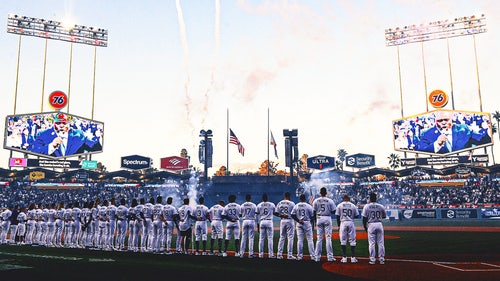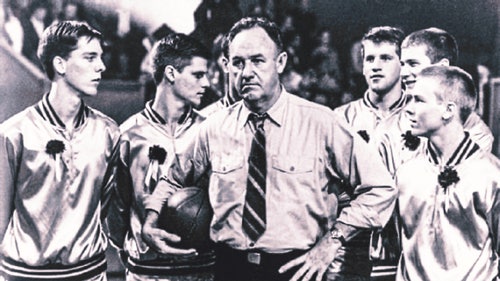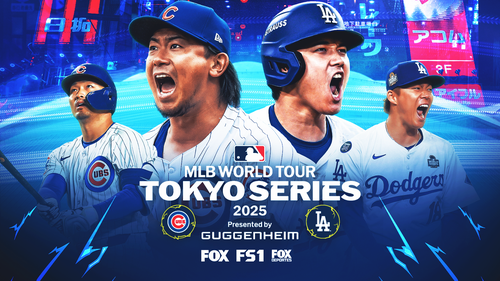
Q&A: Owner Attanasio talks Brewers, budgets, Braun & more

PHOENIX -- Highlights from my interview with Brewers owner Mark Attanasio at the SABR Analytics Conference on Friday:
Attanasio, who made his fortune in money management and capital investment, bought the Brewers in 2005 for a reported $223 million.
ROSENTHAL: Why did you decide to buy a baseball team?
ATTANASIO: It has always been a passion of mine. I was a really mediocre high school player. That's probably stretching it a bit -- a JV player. My cousins seem to recollect that when I was in law school that I said I wanted to buy a baseball team and that was a goal. By the way, if it was a goal, it was really a crazy goal.
When I first got involved with the Brewers, I thought, "Gee, it would be really neat to make a small investment in the commissioner's team, get known to the folks in the sport over 20 years. Then, when I was ready to retire in my mid-60s, maybe I could become a controlling owner of a team, who knows."
The commissioner's family then shifted to doing a full sale of the team. I was a money manager, investment banker. One of the things they taught us was that when you bid on something, it's a non-binding indication of interest.
If you want it, you need to put out a high number. If you put out a low number, they bounce you out of the process. And if the team ends up selling at a low number and you're out of the process, it's hard to say, "Gee, I would have paid that." There is a lot of that in sports. There are 122 sports teams and probably 122,000 individuals who would say, "I would have paid that for that team."
I knew generally what number they wanted. A lot of folks were in the $150 million to $180 million range at that time. I said, $200 million. The next thing I know, I'm in the finals with three or four other bidders. At that point, I thought, "When are you ever going to get an opportunity to buy a major-league baseball team? You'd better get it done."
ROSENTHAL: How did you learn that you were the winning bidder?
ATTANASIO: They had a very buttoned-up process (the sale was conducted by Allen & Co. on behalf of the Brewers). They told me that they would call me by certainly 4 or 5 o'clock West Coast time. They were having their board meeting and their vote.
I leave the office early. I sit in my study at my home. At 4 o'clock, I'm ready. There were a couple of other serious bidders. 5 o'clock, the phone doesn't ring. 6 o'clock, the phone doesn't ring. I was getting a little uncomfortable. I thought this might not be working out.
So I went downstairs. I have a small gym in my house. I got on the treadmill and got rid of the anxiety. In the course of getting rid of my anxiety, I was kind of preparing my concession speech. This was the commissioner's team. I wanted to be gracious, of course.
I go back upstairs. I sit in my office. It's 7 o'clock and the phone still hasn't rung. But at least I have my concession speech ready now. The phone finally rings. 'Mark, it's Steve Greenberg, Allen & Co.' I say, 'Hi, Steve.' And then there is just silence. I think (former Brewers executive) Wendy (Selig, Bud's daughter) was on the phone, too.
There was complete silence. He doesn't say anything. I'm very uncomfortable. I say, 'Now, I know how a Miss America candidate feels.' And Steve, completely deadpan, right on cue, says to me, 'We're not going to have any tears, are we?' I say, 'No tears.'
And he says, 'We have three questions to ask you.' I think the first was about price. Now relative to the bidding process, the two points of advice I can give everyone would be first, indicate a high level and second, if you're down to this final call and they say they have a few questions to ask you, the answer is always yes. Will you bump the price? Yes. I think he may have asked that last. And then he said, 'OK, you've got it.'
I said, 'I've got it? And he said, 'Oh yeah, you're going to be the new owner of the Milwaukee Brewers.' I let out this scream that you could hear throughout my house. Poor Steve, he had to listen to all this. The only other time I can recall being that excited is when Carlos Gomez scored the winning run in that playoff round (the 10th inning of Game 5 of the 2011 Division Series).
ROSENTHAL: Over the years, there have been times when you have been hands-on, maybe more hands-on than most owners. When do you know it is the proper time to exert more influence than you otherwise might?
ATTANASIO: I don't know that you ever know when the right time is. I was saying last night to a couple of our colleagues, as I've been in the sport coming up on 10 years, I worry sometimes that I'm getting bounded too much by convention.
When I insert myself into the process a little bit, it's a function of two things: Passion, and in some cases, I was too inexperienced to know better, but it turned out to be the right move. Now I worry because I have experience to draw on, and I'm more patient -- I don't know that (general manager) Doug (Melvin) would think I'm more patient -- that I don't insert myself the way I might have before.
You don't really know, but one of the nice things about working with Doug, one of the things he told me from the very beginning, going back to the Orioles when he worked for Peter Angelos, he felt like the owner is like a factory owner. If the factory owner wants to put a new machine in, it's his business. The GM running the factory can give you his thoughts. But if I want to do something, he's always been supportive of that. In most cases, he has agreed with what I want to do. But he's supportive of the owner coming in and doing something.
ROSENTHAL: The last two offseasons, you have signed a starting pitcher late. All teams work with a budget, but from the outside it appears, 'Ah, the owner just decided he wanted the player.' How did the (Kyle) Lohse and (Matt) Garza decisions come about? How did you make them work financially?
ATTANASIO: Teams do have a budget. Going back to 2009, we used to have very rigid budgets. I don't want to be (critical). It is so hard to be a major-league player. If you throw one pitch, I'm totally respectful of it. But that year, because we were fitting in a budget, we had four average pitchers. I remember Doug -- he's got a good sense of humor -- that year he was telling the media, "Four of a kind beats two aces." Well, we found out that year that four of a kind may beat two aces in poker, but it does not beat two aces in baseball. It was one of those years.
With experience in the sport, I determined that you need depth, but it was more important to have players who were difference-makers. The budget is kind of there. We've run the team financially responsibly. We can't always stretch the budget the way a large-market team can, but we can stretch the budget -- we stretched the budget when we traded for Zack Greinke (in December 2010). But it gets more attention when you sign a free agent.
In my investments, I focus on opportunity. Usually the best time to be a buyer in the market is when there is either a fear or nobody else is buying. And usually, they're connected. What happened with Kyle, the new CBA had this rule about giving up a draft choice. And giving up a draft choice evolved in our sport from giving up a lottery ticket to giving up your first born. GMs were not going to give up that draft choice. Didn't matter.
We had the 17th pick that year. You can actually do some work and say, "What are the odds of the 17th making it to the big leagues? What are the odds of that pick being a six-year big leaguer?" Which is about 5 percent.
It's a little more nuanced. Your farm system is currency for trades. If we didn't have a good farm system, we couldn't have traded for Zack Greinke. It's not as binary as that. Which is some of the challenges with analytics generally, whether you look at it from baseball or look at it from making an investment, people want to get to a binary: "If it's this, then it's that." And it's usually more complicated. We were also making a decision not to restock our farm system, which needed some re-stocking.
You look at that and you look at what kind of discount that you think you're getting in the market that Kyle Lohse would have commanded after being 16-3. The final overlay in how did it come about is, I came down to Arizona. We did a tour of the Dodgers' and White Sox's stadium. We played the White Sox that day, and our guys just got smoked. I thought there were going to be dents in the wall. It was brutal.
I met with Doug afterward and said, "We've got to get one of these pitchers. We can't just go through a season like this." We all love this sport. What's great about this sport is that there's hope. For folks in Wisconsin ... there's nothing nicer than spending a summer day at Miller Park. But if you know that there is just no chance you're going to win, that is not OK with me. I was very concerned. I wasn't kidding myself to think if we get Kyle Lohse, it's going to change things. I just had to bring up the quality of the product we were giving our fan base.
When the deal was first announced, everyone looked at it as a bad deal because we gave up the draft choice. Now folks are mostly writing about it as a good deal, which it was. ...
Scott (Boras) told me, by the way, that on Kyle, I set a record. The prior record was with John Mozeliak and the Cardinals. (Boras) had made like 19 phone calls to get him to say yes. He made 31 or 33 phone calls to me. We had 33 conversations on Kyle. I think that defines persistence.
ROSENTHAL: OK, what about Garza?
ATTANASIO: Matt is different. We've been focusing on pitching, and in between, we've very quietly done some things to build up our farm system ... So then (we're) thinking, how can we get better? Nez Balelo, who is Ryan Braun's agent, we're talking in California. Actually, it was at Ryan's wedding. He was talking about how maybe one of his (clients) could come into our bullpen. The price was high for us. It wasn't going to work.
I started walking away and I said, "Well, anybody else?" I literally started walking away. He said, "Matt Garza." I spun around and said, "How about Matt Garza?" He told me generically what kind of situation Matt was looking for.
Well, (manager Ron) Roenicke was there. I walked over to him, sat down and said, "Ron, how about Matt Garza?" He goes, "Yeah!" So the next morning, I called Doug and said, "How about Matt Garza?" Doug's first question was, "Isn't he too expensive?"
... This was early December, then all the way through. It was a whole process. I counted -- when we did the Greinke trade, I think we had 14 or 16 people work on that in some way. ... Likewise with Matt, I never counted to that extent. But it was a huge number.
The information that came back on Matt was that he was a good guy. All of the managers who he had pitched for liked having him. We were able to get a good picture. It took probably two months or upwards. Some of it was the amount of time it took us to do the work. And some of it, if you look at free agency over the last several years, again from an analytics standpoint, there are better deals to be had later -- the Rays are brilliant at this, actually. They do a bunch of January signs and they are all good signs.
We really were comfortable with our pitching this year. We've got 20 guys for 12 spots who have pitched well at the major-league level. But Matt changed the whole dynamic, we feel.
ROSENTHAL: The local broadcast revenue challenge. Your deal is locked in. Yet, it's going to be dwarfed by other deals. How do you make it work?
ATTANASIO: It goes through 2020. At that time, we made a short-term extension of eight years. I wanted to do it as short as we could. FOX wanted to do it for as long as they could.
It's one of the reasons the CBA negotiations are so important. Commissioner (Bud) Selig and his negotiating team last time ... they were trying to vector to competitive balance. It's critical. Notwithstanding this disparity in broadcast revenues, we've had terrific competitive balance.
We calculate this year that 17 teams have their highest payroll ever. That includes us, the A's, the Rays, the Padres, Baltimore, Colorado -- the Dodgers are an outlier -- Pittsburgh. That's all working. We need to figure out how to compete against that backdrop. It's an increasing challenge, no doubt.
ROSENTHAL: Ryan Braun. Two years ago, the press conference at Maryvale, we all heard what Ryan said. I am sure you had conversations with him in private in which he expressed similar thoughts. You're the owner of the team. You've made this monstrous investment in him. You made him your guy. What was your reaction when you heard that essentially he had lied to you?
ATTANASIO: That was kind of the second wave -- he lied to me. The first wave, I was just stunned he had done that. Forget that he had lied about it at the press conference. I was stunned he had done it. For a lot of reasons.
Then it sank in. I had him come over to my apartment in Milwaukee. We had a private meeting for an hour. I expressed how he felt about that. But once I did that, and he committed to me that he was going to do everything he could to win back my trust and more importantly, the trust of the fans and the community ...
A baseball team is a public trust. I ultimately needed to do the right thing here. But the right thing, I felt, was to give him the opportunity to win back everyone's trust. And also, the guy is a really good player. There was an editorial in the local paper, "Run him out of town." MVPs don't come through Milwaukee that often. You can't just run someone out of town and be petulant about someone not telling you the truth.
So, we're working through it. He's in the second or third inning of the game here, as far as I'm concerned. He's done a lot of good things in the community since he's come forth. He made a terrible mistake at the age of 28. I'm not making excuses for Ryan. But people make bigger mistakes who are more mature. And America is founded on giving folks a second chance. But he needs to make the most of his second chance. He knows that.










